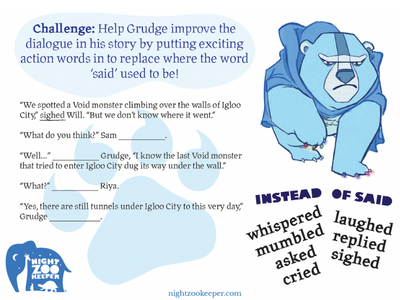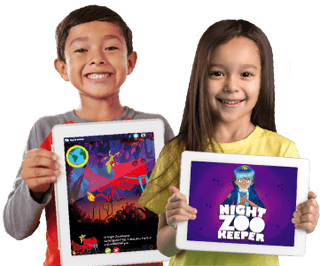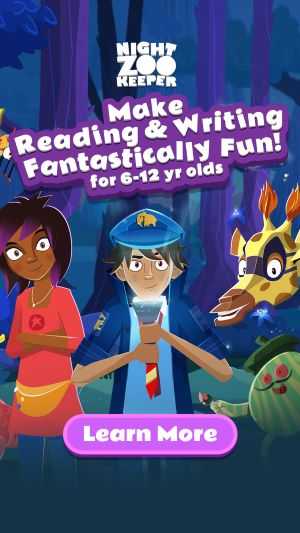‘Said’ Alternatives
Learn different words to use instead of 'said'

Do you want to help your children improve the overall quality of their story writing? If so, a great place to start can be in helping them to use a broad and varied vocabulary, which is particularly important when they are writing dialogue. Young children will often rely heavily on the first dialogue tag they learn in school - the word ‘said’. They tend to repeat this throughout their stories and it can be to the detriment of the writing quality. Varying the words you use to describe dialogue can make your child's stories more engaging. Let’s look at some alternatives to 'said'.
What is a dialogue tag?
This is an important phrase that explains to the reader who is speaking and how they are speaking (volume and tone to show emotion). Dialogue tags also point out that a new character has started to speak.
We’ve compiled a helpful list of 120 dialogue tags to help your children vary their vocabulary choices as they’re writing stories.
How are dialogue tags used?
Young children will also most commonly use dialogue tags at the end of their speech. As an example:
- “Where are you going?” said Grudge the Bear.
In the sentence above, the dialogue in bold has been added after the character speech is complete and the quotation marks have been closed. However, as your children get more confident, they can begin moving these around. For example:
- Grudge the Bear said, “Where are you going?”
By using different variations of the dialogue tag, we can change the tone of the words spoken by Grudge the Bear in this example.
- “Where are you going?” demanded Grudge the Bear.
With this simple change, we now know a lot more about the mood of the character. This is evident again from changing this vocabulary to a word that brings to mind a softer tone of voice…
- “Where are you going?” inquired Grudge the Bear.
Activity & resource
As with all new skills, children will need lots of practice to build up their confidence when using these alternative words. We’ve designed these short activities to help your child get started.

How Night Zookeeper can help

Night Zookeeper makes reading & writing fantastically fun for children aged six to twelve!
Our reading & writing program covers everything your child needs to know about grammar, spelling, punctuation, writing, and reading comprehension.
Sign up today to get a FREE 7-day trial!
More resources
Related content


Make Reading & Writing Fantastically Fun!
- Award-winning reading & writing program for kids
- Improves spelling, grammar, punctuation & vocabulary
- Over 1,000 different learning games and activities



